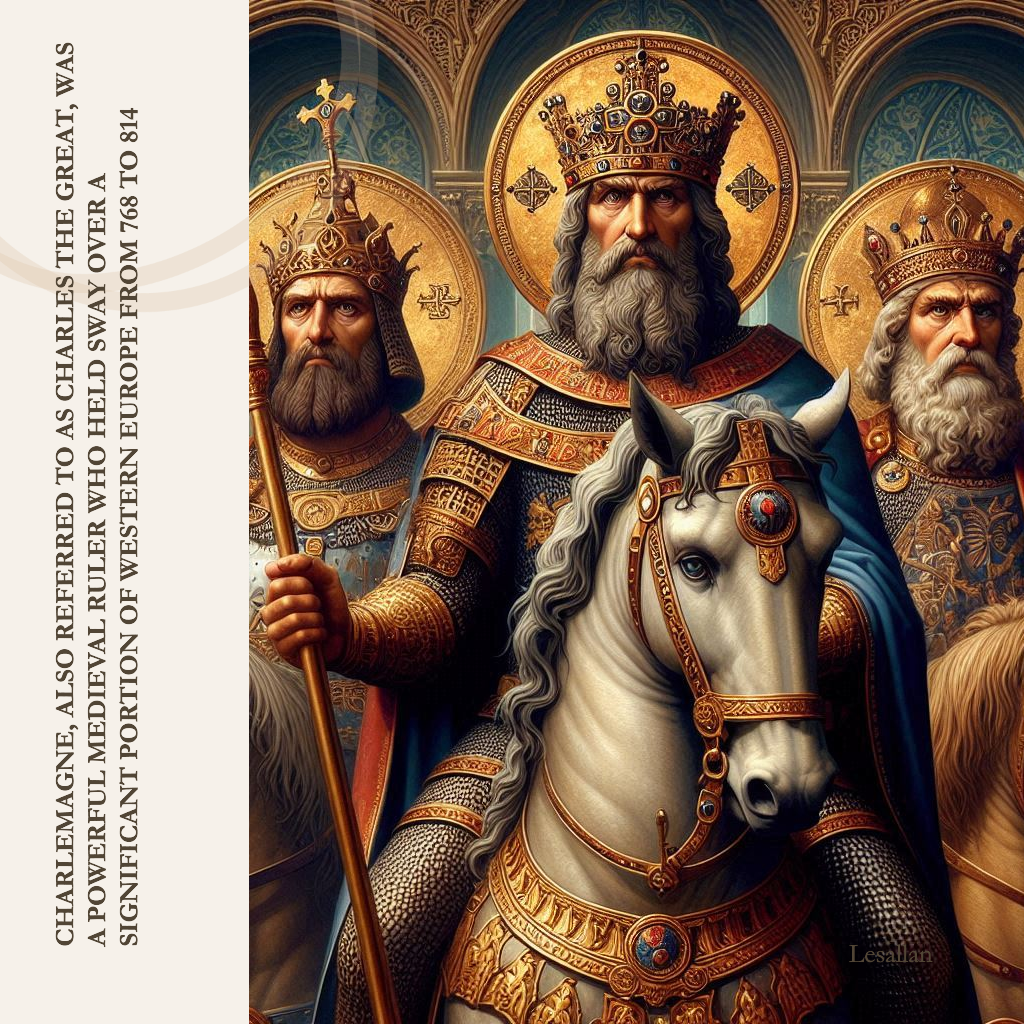June 20, 2024

Charlemagne: The Father of Europe
Charlemagne, also referred to as Charles the Great, was a powerful medieval ruler who held sway over a significant portion of Western Europe from 768 to 814. His appointment by Pope Leo III in the year 800 AD symbolized the resurgence of the Roman Empire in the West and served as the cornerstone for the establishment of the Holy Roman Empire. This essay delves into the life of Charlemagne, examines his influence on history, delves into his strengths and weaknesses, and discusses how his enduring legacy can serve as an inspiration for leading a more impactful Christian life.
What truly captivates me about Charlemagne is the stark contrast between his roles as a warrior and a reformer. His unique ability to lead military campaigns, a symbol of power and dominance, while simultaneously championing cultural and educational reforms, a testament to his intellectual depth, is truly remarkable. This duality in his character is a fascinating aspect to explore, leaving us with a sense of intrigue and admiration for his multifaceted persona. Charlemagne’s vision of a unified Christian Europe and his strategies to achieve this, whether through diplomacy or force, underscore his complex and multifaceted character (McKitterick, 2008).
Charlemagne’s influence on history is not only deep, but long-lasting. He is frequently recognized for bringing together a substantial part of Western Europe, a feat not achieved since the time of the Roman Empire. His rule initiated the Carolingian Renaissance, which sparked a resurgence of art, culture, and education with a focus on the church (Einhard, 1969). Charlemagne supported the church by establishing schools and promoting literacy among the clergy (McKitterick, 2008), which left a lasting imprint. His efforts to standardize liturgical practices and improve the moral and intellectual quality of the clergy had a lasting impact on the church (Einhard, 1969).
Charlemagne’s military conquests expanded his empire and spread Christianity throughout Europe (McKitterick, 2008). His campaigns against the Saxons, Lombards, and Avars were particularly significant in consolidating his power and spreading Christian influence (Einhard, 1969). The Massacre of Verden, where he ordered the execution of 4,500 Saxons, is a stark reminder of the brutal realities of his rule (McKitterick, 2008). Despite the controversy, his actions helped establish a unified Christian empire that would influence European history for centuries.
Charlemagne’s strengths were numerous. He was a skilled military strategist, a visionary leader, and a patron of education and culture (McKitterick, 2008). His ability to unify disparate groups under his rule and his commitment to religious and educational reforms were key to his success (Einhard, 1969). Charlemagne’s personal qualities, such as his energy, courage, and generosity, also contributed to his effectiveness as a leader (McKitterick, 2008).
However, Charlemagne had his weaknesses. His reliance on military force to achieve his goals often led to brutal and violent outcomes, such as the Massacre of Verden (McKitterick, 2008). His lack of diplomatic finesse and empathy for his subjects sometimes hindered his ability to maintain long-term stability (Einhard, 1969). Additionally, his personal life was marked by numerous marriages and relationships, which complicated his legacy and succession (McKitterick, 2008).
Charlemagne’s life offers valuable lessons for living a more effective Christian life. His commitment to education and the promotion of literacy among the clergy underscores the importance of knowledge and learning in the Christian faith. By investing in education and personal growth, we can better understand and live out our faith (McKitterick, 2008).
Charlemagne’s vision of a unified Christian community reminds us of the importance of unity and cooperation within the church. Despite his sometimes-ruthless methods, his goal of spreading Christianity and improving the moral and intellectual quality of the clergy aligns with the Christian mission of evangelism and discipleship (Einhard, 1969).
Moreover, Charlemagne’s strengths and weaknesses highlight the need for balance in leadership. While his courage and determination were admirable, his lack of empathy and reliance on force serve as cautionary tales. As Christians, we are called to lead with both strength and compassion, seeking to build up others and promote peace and justice (McKitterick, 2008).
Charlemagne’s contributions to the history of the Middle Ages are immense. His efforts to unify Western Europe, promote education, and strengthen the church had a lasting impact on European history. By examining his life, we can draw valuable lessons for our own Christian journey, striving to balance strength with compassion and to pursue knowledge and unity in our faith communities.
References:
Einhard. (1969). The Life of Charlemagne. University of Michigan Press.
McKitterick, R. (2008). Charlemagne: The Formation of a European Identity. Cambridge
University Press.


